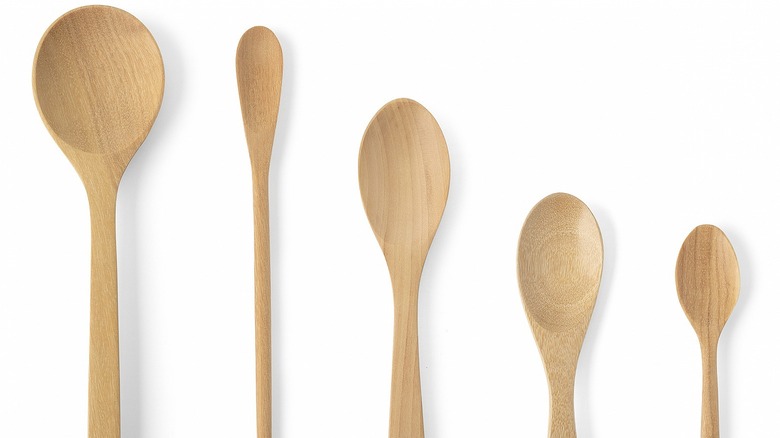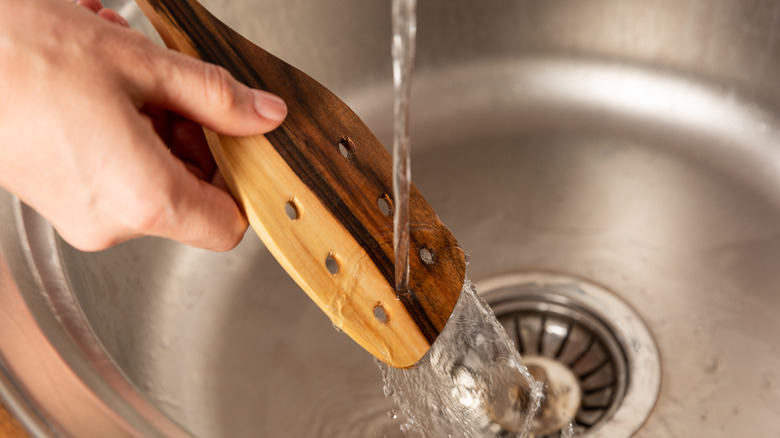Is It Actually Okay To Boil Wooden Spoons To Remove Cooking Residues?
As sophisticated and efficient as dishwashers are today, there are, unfortunately, still some items that shouldn't get washed in them — especially wooden spoons. Because wood is a porous material, anything made of wood shouldn't go in the dishwasher, as it will absorb a lot of water. Once that water evaporates, wooden spoons have a higher risk of warping and cracking.
Yet some folks insist that mere hand washing isn't enough for these spoons. Influencer Nicole Jaques shared on TikTok that she gives her wooden spoons a monthly deep clean by submerging them in boiling water for as long as 20 minutes. But is that really a good idea?
America's Test Kitchen pushes back in its own TikTok video to say that boiling wood utensils forcibly dissolves their protective finishes and natural oils. This leaves spoons vulnerable to staining and residue buildup in the future. Wooden utensil designer Brad Bernhart, who spoke with Allrecipes about the topic, agrees, saying the practice should be done "once or twice a year" at most if it seems truly necessary. Because a boiling pot is a high-heat, water-filled environment just like the dishwasher, the boiled spoons will dry out leaving raised, rough wood grain that's vulnerable to splitting. Simply put, boiling will shorten the life of your wooden spoons, which is especially tragic for family heirlooms or expensive, hand-turned woodwork.
The better way to care for wooden spoons and utensils
Instead of the drastic method of boiling wooden spoons and other wood utensils to remove built-up gunk, a better approach is to simply wash the utensils right after using them. This way food doesn't have a chance to stick. Wash wooden utensils with warm, soapy water — don't leave them to soak, as this will cause some of the same problems as boiling — rinse them, and dry them with a cloth.
To maintain wood utensils, it's a good idea to periodically rub them with a thin layer of mineral oil or a mineral oil-beeswax blend, which America's Test Kitchen compares to moisturizing your skin in their TikTok video. Let the wood absorb the oil overnight, then wipe away any excess. It's a similar idea to oiling a cast iron pan to season and seal the surface. This simple step helps protect the finish and prevents water and other substances from penetrating the wood.
While you're at it, give your wooden cutting boards and bowls a little love, too. You'll be rewarded with gleaming wood kitchenware that will last for years. And save that boiling water for the pasta.

